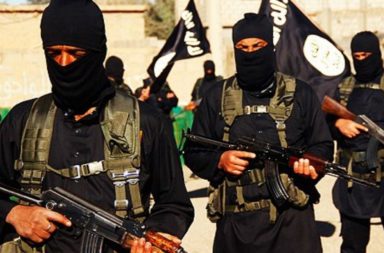After losing ground in Syria and Iraq, ISIS has stepped up its suicide-bombing campaign around the world. Cowardly attacks on unsuspecting civilians, as we have seen last in Istanbul and Jakarta, are easier to execute than winning actual battles in the field.
It is probably not a coincidence that the two latest such attacks have hit countries which practice a form of Islam that is largely compatible with Western values. Both Turkey and Indonesia stand out in the Muslim world as places where the rights of religious minorities are protected and whose societies are shaped by a relatively moderate form of Islam. This still holds true despite Mr Erdogan’s push to anchor religious rules more firmly in the country of Atatürk, which are motivated politically more than religiously. Both countries represent what Islam has stood for over centuries: the peaceful coexistence of different cultures and a respectful conduct in everyday interactions by people of different faiths.
But even as ISIS goes on a world tour of terror, its vile acts can’t mask its imminent decline. This is not to say that the group won’t be around for years, but its dream of a radical caliphate, based on medieval rules and inhumane violence could well find a bloody end in 2016.
There are 3 reasons why the terror attacks don’t work:
1. The attacks themselves are badly executed. In Jakarta 7 gunman managed to kill two civilians, all while loosing 5 of their own. Hardly a successful strategy to incite fear in the hearts of the international community. Despite the fact that any loss of life is always a great tragedy, the Indonesian police can mark this one as a win. In Istanbul ISIS managed to kill 7 German tourist. They thereby drew the ire of the one European country with substantial resources that so far isn’t fully committed to wipe them of the face of the earth. Germany is already engaged in the campaign to fight the Islamic State but hasn’t committed in the same way that France, the UK, and the US have. This might well change after the Istanbul bombing, as German public opinion slowly starts to shift in favor of a more robust mission.
2. The attacks discredit ISIS in the Islamic world. As more and more innocent people lose their lives, Muslims around the world start fighting back, From the Iraqi government’s announcement to destroy the Islamic state once and for all, to a fatwa issued against the heretics in Raqqa, the signs are mounting that ISIS is beginning to face a united Muslim front. Already they are under fire from both Shia Iran and Sunni Saudi Arabia. Thier grandiose dream of erecting a caliphate might still have the power to capture the imaginations of a few radical youths, but the more their brutality becomes evident, the more will Muslims take up the fight to defend the true Islam.
3. Their cruelty can’t hide military failures and the cowardice of ISIS troops. The loss of Ramadi is only the latest of big losses ISIS has suffered at the hands of the coalition forces. In Syria the SDF (Syrian Democratic Forces) have regrouped with unprecedented force. Recent reports indicate that the fighting morale of the terrorist organization is not nearly as strong as it likes to pretend. Mostly cowards, Syrian captives frequently surrender immediately. Only the most radicalized foreign fighters prefer to die. No matter what kind of combat operations the self-proclaimed holy warriors evince, the end of their days seems to be sealed. A clear sign therefore is that many Sunni – Arab tribes in Raqqa oppose IS publicly, even confronting the danger that their families may have to pay the ultimate price.




